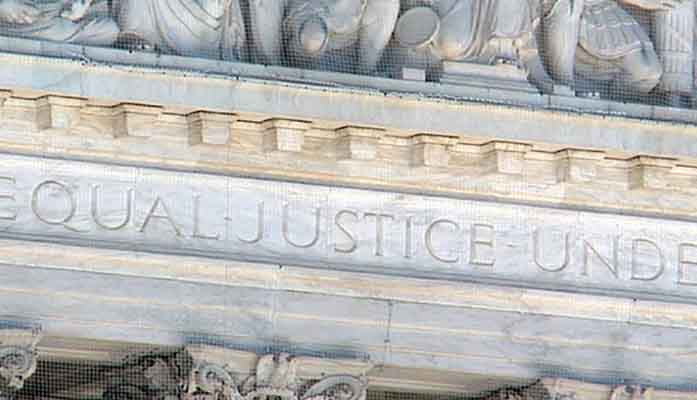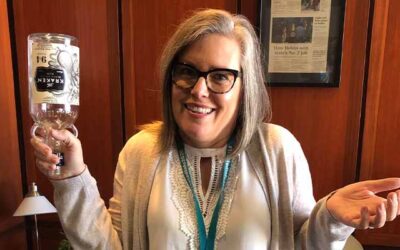By Terri Jo Neff |
On Feb. 12, 2019, Pat Call had been serving on the Cochise County Board for more than a decade representing for the Sierra Vista area, which includes the Army’s Fort Huachuca. It was also the day Call and his two fellow supervisors took part in a public and then a private meeting which ended with his appointment as justice of the peace of the Sierra Vista Justice Court.
The new job paid twice Call’s supervisor salary despite the fact he was not an attorney and had no judicial experience. But there was no advance public notice that Call was even interested in the position, and during the meeting Call suggested the board not utilize a nomination committee to review any perspective candidates, all of whom were lawyers with experience in justice court operations.
The Arizona Supreme Court announced Wednesday that it will hear a local resident’s challenge to Call’s appointment based on alleged violations of Arizona’s Open Meeting Law and Conflict of Interest Statute. The case is being watched by public agencies and government attorneys across the state.
“When it comes to holding public officials accountable for backdoor deals, this is the most important case in Arizona history,” appellate attorney David Abney said after the justices accepted the case for review.
Abney is one of three attorneys representing David Welch, the Sierra Vista resident who challenged the appointment. He told AZ Free News it does not matter that Call’s term on the bench ended in December 2020.
“There are still penalties and sanctions that can be assessed against those who violate the open-meeting and conflict-of-interest laws,” Abney said. “So Justice of the Peace Call’s departure does not insulate him or his collaborators from liability.”
The county defendants contend they did nothing improper in filling the court vacancy, and point to the fact the Cochise County Attorney’s Office provided legal advice throughout the process.
“The Arizona Legislature has made clear that, for a plaintiff making claim to a private right of action under Arizona’s conflict of interest or open meeting laws, he or she must be ‘affected by’ the alleged violation,” according to the county’s petition for review to the supreme court. The county contends Welch has no standing to challenge the board’s action.
Welch lives within the boundaries of the Sierra Vista Justice Court and had a misdemeanor case pending at the court at the time of Call’s appointment. His case would have been heard by Call, but the county attorney’s office had the case dismissed the day Call took office.
The county later invoked the ratification option in Arizona’s Open Meeting Law to reaffirm Call’s appointment as justice of the peace during a special meeting in March 2019. Welch, however, takes the position shared by Arizona Attorney General Mark Brnovich that the supervisors may still be open to personal liability if it is shown they engaged in misconduct.
But it is not only the open meeting law issues that Welch has challenged.
Public records show Call engaged in discussions about how to fill the court vacancy he was awarded a few hours later. He also took part in an executive session with the other supervisors, a deputy county attorney, and the county administrator just before being appointed.
Arizona’s conflict of interest statute requires a public officer who has a substantial interest in any decision of a public agency to make known such interest. Then the public officer “shall refrain from participation in any manner…in such decision.”
There is no ratification option in that statute to simply “do-over” or reaffirm a decision.
A judge from outside Cochise County initially dismissed Welch’s complaints on the basis of a lack of standing to bring the challenges. That ruling was overturned in a unanimous Arizona Court of Appeals decision in October 2020, which sent the case back to the lower court for a new hearing on Welch’s arguments.
For now the case is on hold while the supreme court reviews the appellate decision. Attorney Chris Russell has been on Welch’s case from the beginning and understands some residents are frustrated the case has been going on more than two years with no immediate end in sight. But he is looking forward to the attention the Arizona Supreme Court’s review will generate.
“Corruption thrives in the darkness,” Russell said. “Without open and transparent government free from conflicts-of-interest we are no better than a cabal run by the rich and powerful. History has proven that such a circumstance is always detrimental to the people.”
The supreme court has given the parties until early May to file any updated legal briefings before oral arguments are conducted later this year.








